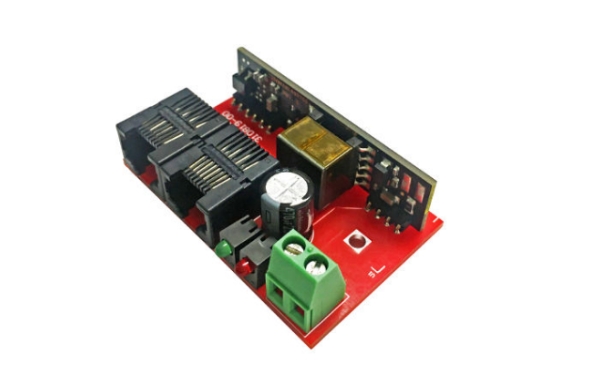With the diffusion of the IoT (Internet of things) and the numbers of Wi-Fi and wireless nodes continuing to grow together the applications requiring power (more than you can do with a battery and/or an ultra-low consumption node), the idea of using only one cable to bring connectivity and power – especially to a large number of nodes – is becoming more and more popular and welcomed in a lot of applications.

The source of a PoE circuit (often called an injector because the power is generated not used) is something we can rarely control. It is simply a DC power between 21 and 44 V with enough power capacity to allow the proper “class” standard of PoE (let’s say between some watts and some tens watts). Our experience as an industrial manufacturer (and user) suggests to us that we have to focus our attention on the PoE “adapter” that is the place where the PoE power is used and transformed.
We are industrial oriented, and considering the amount and the kind of toy PoE adapters on the market that we have seen and tested, for consideration in our SBC applications, we felt we needed something more to properly power our industrial devices, where the 24/7/365 mission profile is a must. We were unable to find an extended temperature range module that would keep up with our SBC offerings, because it seems no one offers it with proper assurances and, for example, meets the need for conformal coating, necessary to survive the condensing humidity. Last but not least, these modules were not protected from spike, surge, cabling errors (typical problems that you can face on the power line of a complex wiring). So, your “industrial application”, we hope made with a Novasom board, probably will fail because you cannot find an industrial rugged certified PoE module, minded and build to last…Till now.
Our new class of PoE PD adapters has been developed to exactly fit this gap, giving you a warranted rugged solution that you can use to power your devices.
Perfect to be used with your Novasom board!
Read more: NOVASOM LAUNCHES POE ADAPTERS DESIGNED TO THE IEEE802.2AX STANDARD
